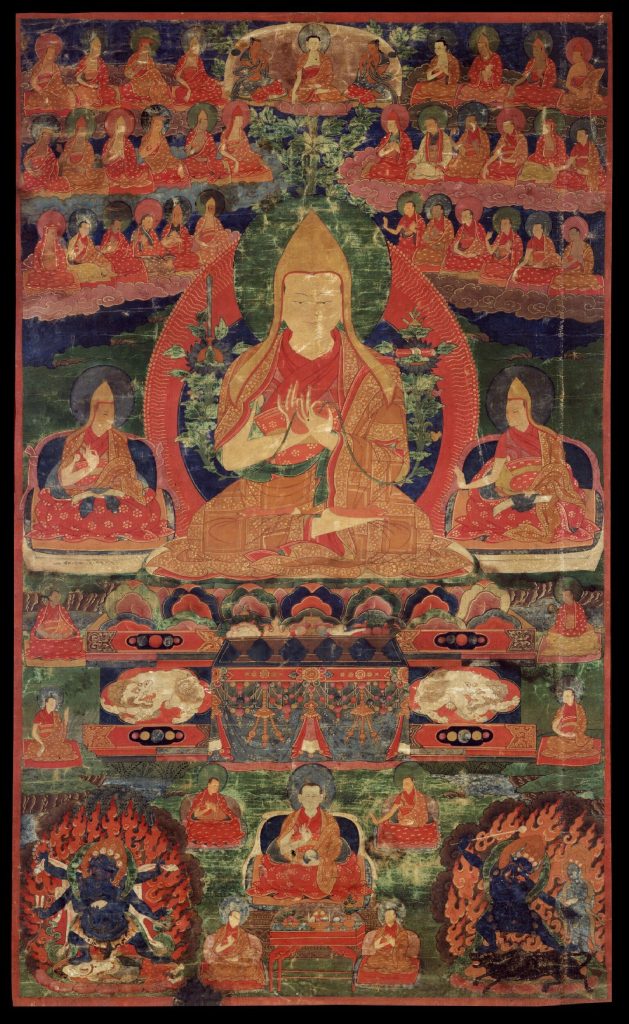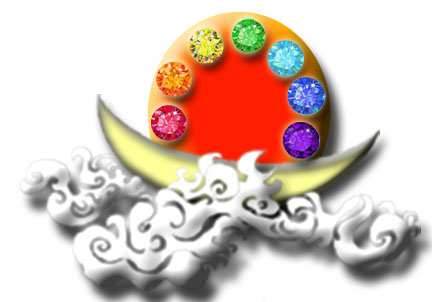
We have a course listed on Master Tsongkapa’s (1357-1419) classic The Lam Rim Chen Mo or Broad Commentary on Levels of the Bodhi Path, which will probably use Master Pabongka’s (1878-1941) Liberation in the Palm of Your Hand, A Concise Discourse on the Path to Enlightment as its text. Pabongka gave the series of discourses in 1920 as a commentary on The Lam Rim, while Tsongkapa composed the original over 500 years earlier.
The course, C40, has not been developed yet, but the Lam Rim Chen Mo is one of the books recommended by H.H. Dorje Chang Buddha. It is one of the text used by the Tibetan masters to explain the various stages on the paths followed to become a Buddha. Master Tsongkapa also wrote several brief summaries of his Lam Rim Chen Mo that may also be studied to provide a foundation for a traditional Tibetan course of study and training, at least in the Geluk sect. Several English translations are available of Tsongkapa’s The Principal Teachings of Buddhism that includes a commentary by Pabongka and Preparing for Tantra: The Mountain of Blessings, also with a commentary by Pabongka. Translations of just the very short verses by Tsongkapa are also available through the Foundation for the Preservation of the Mahayana Tradition as The Three Principal Aspects of the Path and The Foundation of All Good Qualities. The latter two can also be obtained on Kindle.
I had not read these writings of Master Tsongkapa since we received the core teachings of H.H. Dorje Chang Buddha III and now found them delightful. They demonstrate the same principles that our Buddha Master imparted, but in a more formal and, for me at least, harder to understand format. I can understand so much more and now appreciate the language of another era and can also be so grateful that our Buddha Master gave us Buddha Dharma that is more suitable for our age and time. I can also see areas where the other masters don’t have the same depth of understanding or clarity that His Holiness provides, but that they do provide insights that are very helpful. They offer a systematic way of understanding the different paths or traditions that I believe can help us better follow our Buddha Master’s teachings.
Tsongkapa’s Lam Rim Chen Mo mentioned above is one of the commentaries recommended by our Buddha Master. It may be some time before we can have a full course on it at Learning from Buddha College & Seminary, but if there is enough interest, I would love to offer a course on at least one of the very concise versions of Tsongkapa’s Lam Rim.




Add comment